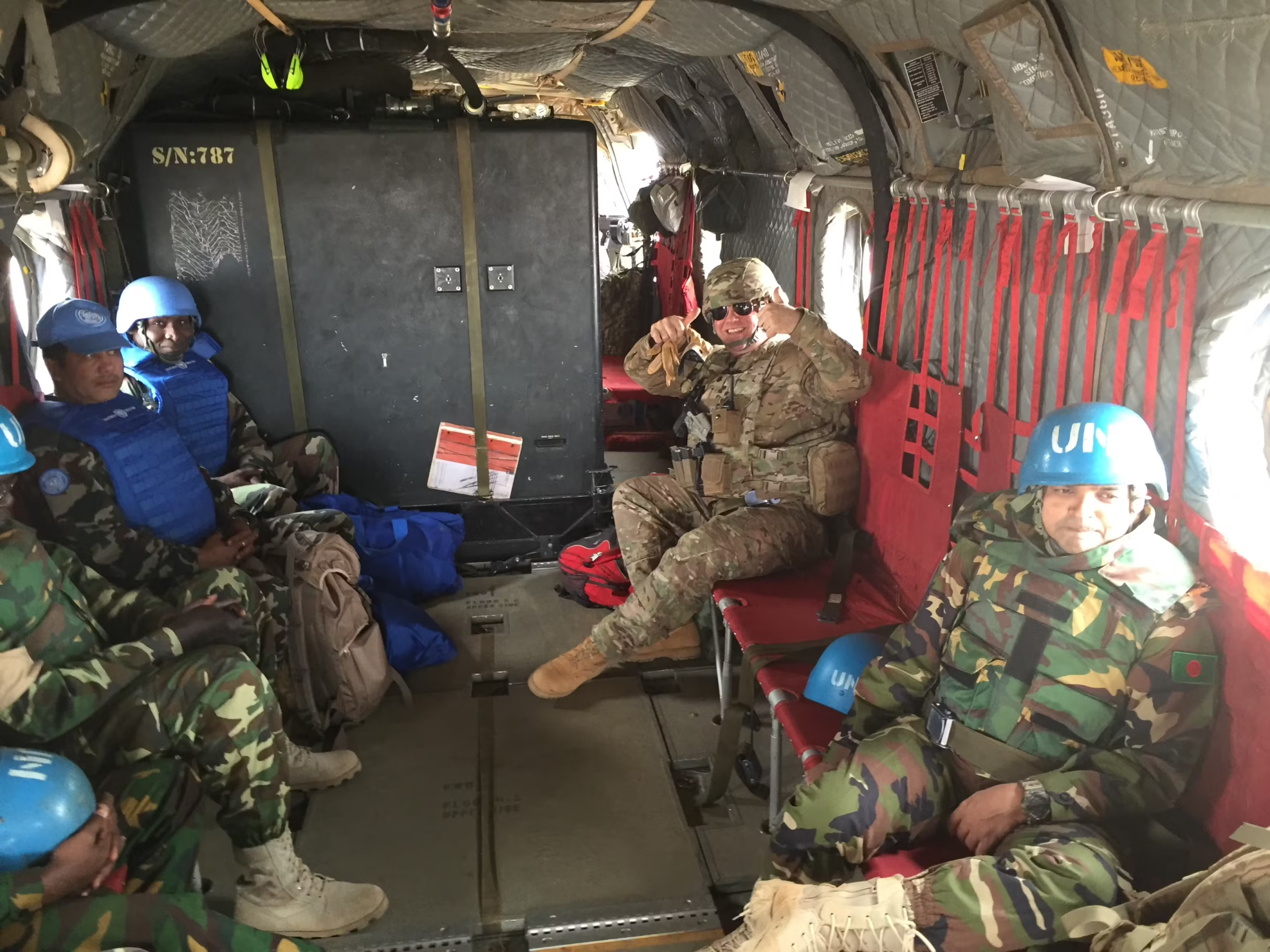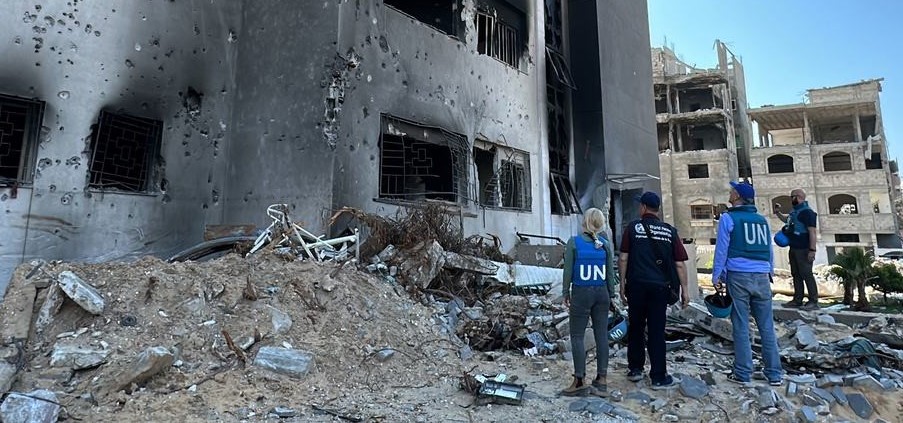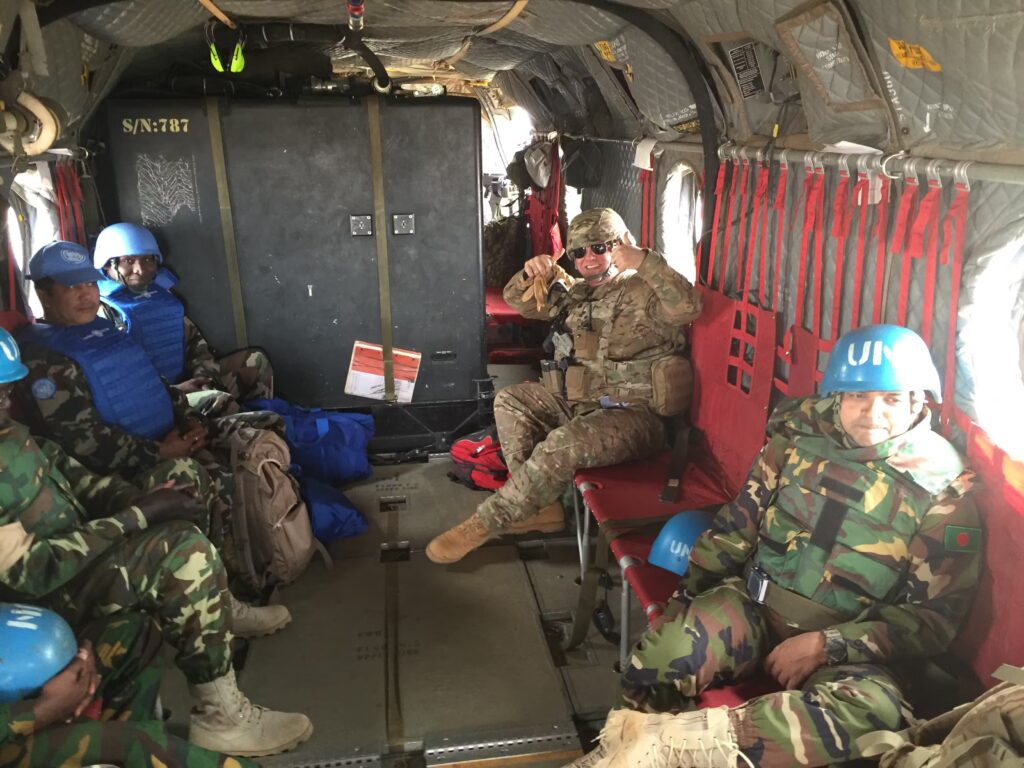At his 2025 inauguration, President Trump said something profound: “We’ll measure our success by the wars we end as much as the wars we never get into.”
“We’ll measure our success by the wars we end as much as the wars we never get into.”
President Donald Trump
This Veterans Day, many of us will pause to remember sacrifice. And the best way to honor that sacrifice? Make sure fewer young Americans don’t have to fight the wars we could have prevented.
That’s what United Nations peacekeeping does.
It’s not glamorous. In fact, its biggest success stories are usually the ones you’ve never heard about. But ask anyone who’s worn a uniform, and they’ll tell you: a crisis prevented is infinitely better than a war fought.
A crisis prevented is infinitely better than a war fought.
The Origins of the UN
Too often, we forget that it was actually veterans who built the United Nations. Harry Truman, who signed the UN Charter for the United States, marched through the mud of France in World War I. He knew exactly what the world looked like when nations stop talking. It’s why he believed so deeply in the UN experiment. To him and his fellow veterans, the UN wasn’t idealistic – it was necessary. It was how they ensured their grandchildren wouldn’t see what they could not unsee.
That instinct still lives on in the Americans who serve the UN today.
Take Michael Center. A Marine veteran and former sheriff from Arkansas – a self-described “Ozark hillbilly.” Today, he’s the UN’s chief security officer in Gaza. His days involve airstrikes, impossible calls and calculating whether a route keeps aid workers alive or cuts civilians off from help. “We might not fix everything,” he says. “But we show up. And sometimes, that’s enough.”
“We might not fix everything… but we show up. Sometimes, that’s enough.”
Or Paul Snyder, who talks about serving as a blue helmet in Mali the way only veterans can – through the small joys that pierced the hardship. “We got excited about fresh fruit deliveries we could bring to the local kids,” he says, recalling those rare shipments amid gunfire that reminded him what he was there to protect. After carrying the remains of fallen soldiers and defending civilians on the brink, he came to a simple conclusion: “We can do better. We owe people that much.”
These veterans know what war looks like – and what preventing one looks like. They’ll tell you they’ll take the latter every time.
Saving Lives – and Dollars
What’s more, peacekeeping is cost-effective – about eight times cheaper than deploying U.S. troops. That means the entire global peacekeeping budget is less than half of one percent of the U.S. defense budget.
But saving money pales in comparison to saving lives.
The UN prevented a near-war between Nigeria and Cameroon. Stopped Macedonia from becoming the next Bosnia. Averted civil war in Guinea. Prevention rarely gets credit because a good day on the battlefield is a quiet one. And that is the success of peacekeeping.
So this Veterans Day, thank the people who laced up their boots for all of us. Then take one more step.
If we truly want to honor those who served, let’s build the world they hoped to leave behind – one where, as our Commander-in-Chief has said, American strength is measured by the wars we never have to fight.
UN peacekeeping is part of that promise. It keeps faith with the veterans who built the UN – and the Americans who serve it today.
If we truly want to honor those who served, let’s build the world they hoped to leave behind.




